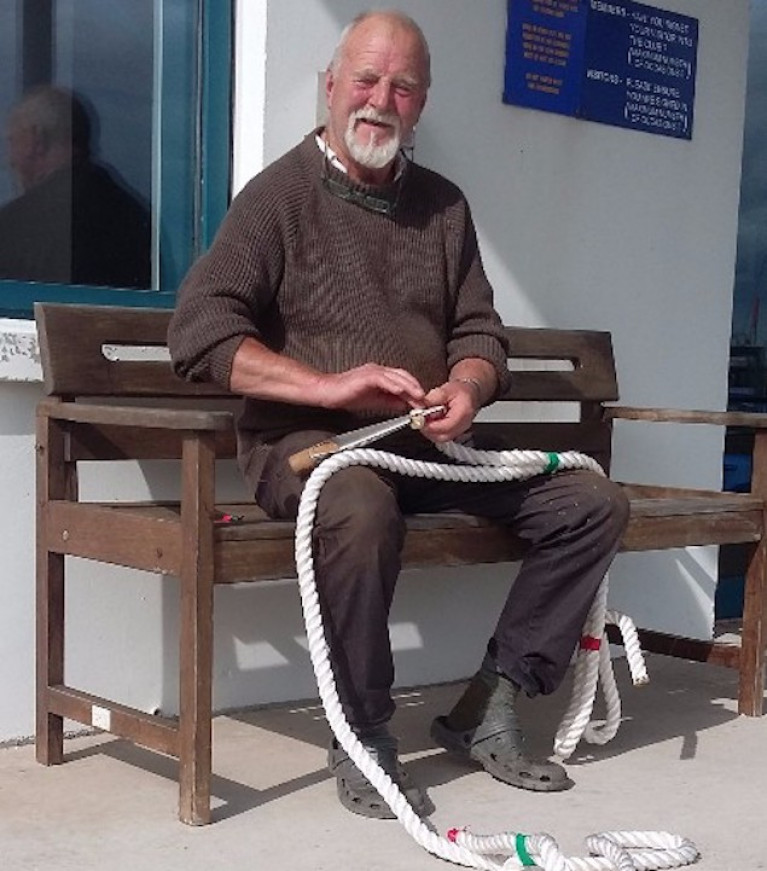It's a long way from Whiterock on Strangford Lough to Clifden in County Galway where the new Shannon class all-weather lifeboat will be stationed in 2022. It will be the second such vessel to be part of the charity's 'Launch a Memory' fundraising campaign and the first to be based in Ireland.
There will be space for 10,000 names on the hull and one which will be there is that of the late Don Clarke, long time boatman at Strangford Lough Yacht Club where he was also in charge of the clubhouse and grounds and involved in club safety boat services. He was an Auxiliary Coastguard for Whiterock and Portaferry area. His niece Gillian Clarke, instead of sending cards at Christmas, has donated to the RNLI in memory of her Uncle Don; "As an RNLI volunteer and an Auxiliary Coastguard Don helped save many lives over the years" Gillian said, "In his memory, I wish all my family and friends, near and far, a very Peaceful Christmas and a better New Year for us all in 2021".
Originally from Crosshaven, in Cork Harbour, Don joined the Club in 1969 and worked there until he retired. He passed away in August last.
Through the 'Launch a Memory' campaign, members of the public and supporters of the charity will be able to commemorate a loved one by donating online and submitting that person's name. The name of each person being remembered will be featured within the lifeboat's letters (RNLI) and numbers, or decal, displayed on the vessel's hull in lettering 3-4mm in height. The first Launch a Memory lifeboat is due to go on service in Invergordon, Scotland.
The honour of the first name on the new lifeboat will go to a young lifeboat volunteer, Lee Early (26), from Donegal, who tragically lost his life last year when he was involved in an accident on Arranmore Island.
Daniel Curran, RNLI Engagement Lead, said: "We are so pleased to be able to bring Launch A Memory' to Ireland, with a lifeboat that will save lives off our coast for generations. Everyone who supports the campaign will receive email updates about the lifeboat, keeping them informed of all major developments on its journey to going on service and saving lives at sea in Clifden."
There are three ways people can get the name of a loved one on the Launch a Memory lifeboat. Donations can be made online at rnli.org/launchamemory by phone on 01-895 1800 (Monday to Friday 8 am to 6 pm) or alternatively by post to RNLI, Airside, Swords, County Dublin K67 WA24. There is a suggested donation of €30 with space to commemorate up to 10,000 names on the lifeboat.
































































